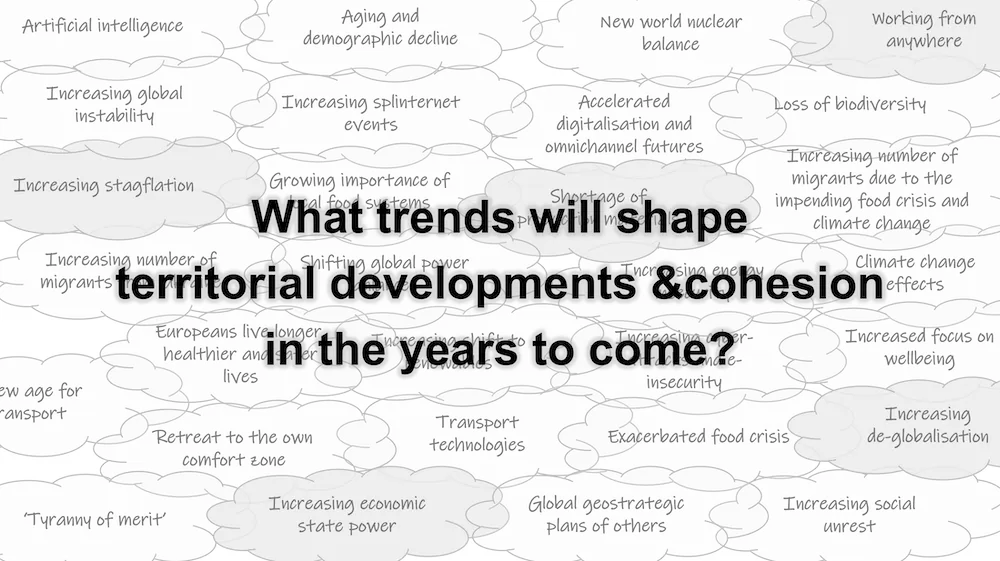Economic trends shaping territorial cohesion
Feburary 2023

Following up on earlier blog posts addressing trends shaping territorial cohesion, this blog post addresses a collection of more economic trends. The collection is based on various studies addressing mega-trends which we have conducted during 2022, e.g. for the European Parliament (Abre numa nova janela), the European Committee of the Regions (Abre numa nova janela) or ESPON (Abre numa nova janela). Bringing together the various pieces of trend analysis provides a rich picture about possible developments which may shape territorial development and cohesion in Europe.
Trends considered to have the strongest impacts on territorial development and cohesion include exogenous technological (Abre numa nova janela) (e.g. digital society, post-carbon and circular economy), social (Abre numa nova janela) (e.g. migration, aging, fluid social institutions and shifts in values), environment (Abre numa nova janela) (e.g. adapting/mitigating climate change and managing scarce resources), and economic trends (e.g. slowbalisation, peak of everything, working from anywhere). Also, political trends play an important role, both political developments in Europe, as well as those in other parts of the world which affect development prospects in Europe.
The combined picture which emerges from this suggests that future trends are likely to exacerbate spatial and societal fragmentation, interdependencies and policy mismatches. In many regards the trends point to risks of increasing concentration on urban areas with growing territorial imbalances and inequalities, which may translate into social fragmentation and increasing discontent. This also risks increasing perceptions of uncertainty and vulnerability in a world of disruptive changes leading to ‘pervasive uncertainties’.
Economic trends
External and internal shocks and global interrelations are key characteristics of the economic mega-trends we have addressed in the various studies. While the pandemic and Russia´s war on Ukraine affected economic outlooks, key trends including de-globalisation or ‘slowbalisation’ have been in the discussion already before that. There are certainly also a range of technological trends which pave the way for economic activities, as addressed in an earlier blog post (Abre numa nova janela).
Still, the pandemic and Russia´s war on Ukraine have brought a shock to the global economic outlook, with commodity prices and global value chains being disrupted, lowering EU growth, increasing inflation and upsetting global markets.
To read this post you'll need to become a member. Members help us fund our work to ensure we can stick around long-term.
See our plans (Abre numa nova janela)
Já é um membro? Iniciar sessão (Abre numa nova janela)


